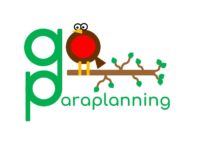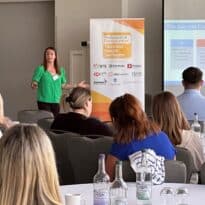AI can be a paraplanner’s most valuable assistant, so is it time to unleash its power? Richard Cooper, business development manager at The London Institute of Banking & Finance, looks at how AI can be used to streamline your report writing process.
In the ever-changing world of technology, artificial intelligence (AI) is arguably the innovation that’s most likely to completely revolutionise our working lives. One area in which AI has already proven to be immensely helpful is report writing.
In this article, we will explore how you can use AI to streamline your report writing process, as well as looking at some of the other benefits it offers for paraplanners.
Introducing ChatGPT
You’ve probably already heard of ChatGPT, as it’s rarely been out of the headlines in recent weeks. ChatGPT is an advanced AI chatbot developed by OpenAI. Its standout feature is its ability to process requests and produce responses in realistic, natural language. As such, it could be a credible tool for paraplanners in crafting and refining reports.
Chat GPT can generate content in seconds. It can also summarise data, scan the internet for data and even re-write things in a specific style or format. So, when it comes to report writing, paraplanners could use it to help them produce copy, ask for suggestions on structure and even request ideas on what information to include. Of course, the platform can also be used to check that correct punctuation and grammar is being used throughout your writing – much as many of us already use programmes such as Microsoft Word.
The advantages of this are probably fairly obvious – by getting ChatGPT to help with writing and structuring reports, paraplanners can save significant amounts of time.
Does ChatGPT always get it right?
As impressive as ChatGPT’s capabilities may seem, it’s far from perfect. Critical thinking and human judgement are still required to ensure the quality and integrity of the report. And it doesn’t always get its facts right (sometimes it just makes things up!) – so an independent fact check is still required.
Time efficiency is an obvious potential benefit, as ChatGPT’s speed allows paraplanners to reduce the time it takes to produce initial drafts of reports – allowing them to focus on higher-level tasks.
But it isn’t just a time saver. ChatGPT can generate ideas and offer insights on how paraplanners can approach their report writing. This will be especially useful for those who find writing a laborious task or suffer from the dreaded ‘writer’s block’.
What are the strengths of ChatGPT?
ChatGPT’s strength is as a collaborator. It can help paraplanners to be more innovative and produce thought-provoking suggestions which can ultimately result in more engaging and well-rounded reports. It can also be invaluable as a fact-checking tool. While you should always check anything that ChatGPT produces to make sure it is referencing facts and not fiction, the AI can instantly reference huge amounts of data. This can be a really useful starting point when approaching a report.
It’s also true that ChatGPT can play a role in identifying potential inaccuracies in a paraplanner’s work – particularly when it comes to the proofreading process. It can quickly scan text for typos, double spaces and grammatical slip-ups, as well as make suggestions for improving readability. This is particularly beneficial if you don’t have access to a dedicated proof-reader and rely on self-editing. Once again, though, you’ll need to check the final draft carefully.
ChatGPT can be useful at any stage of the drafting process. Paraplanners can use it to draft parts of their report, then review the content it produces and tweak it using various prompts – all they need to do is type what they want ChatGPT to do using real, natural language.
It can also be useful once the report has been completed. For example, if you want to produce a summary of a multi-page report, you can copy the report into the ChatGPT console then ask it to produce a short summary – you can even specify the word count.
AI can be a paraplanner’s most valuable assistant
As with any emerging technology, ChatGPT is not without its limitations. Paraplanners will need to use their judgement in how they incorporate its suggestions, as well as ensuring they verify any facts or data sourced by the AI.
The technology uses algorithms based on existing data (and only to a certain point in time – September 2021) and even its developers note that it is prone to making mistakes. That includes factual errors. It’s also worth noting that professional paraplanners will have a much greater understanding of their intended audience, which will be a significant consideration when it comes to the language and phrasing suggested by ChatGPT.
Whilst it has its limitations and requires careful ‘supervision’ by paraplanners, ChatGPT can make paraplanners lives easier when it comes to writing reports. By embracing the power of AI, paraplanners can unleash their creativity, save time, and produce reports that are both engaging and accurate. But use it with caution!
Editors note: A major caveat here is that as useful as AI may prove to be in creating general content, client sensitive information should not be put into any AI tool at the moment, as it is not known where this information is stored or who might have access to it.































